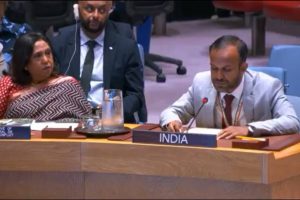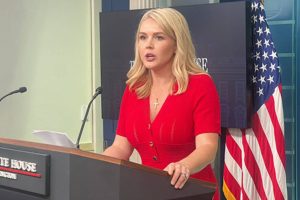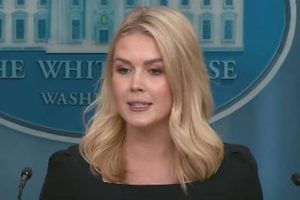The Pakistani government has announced plans to formally nominate former U.S. President Donald Trump for the 2026 Nobel Peace Prize, citing his “decisive diplomatic intervention and pivotal leadership” during the recent India-Pakistan conflict, according to The Dawn.
The conflict, marked by intense cross-border shelling, culminated in a temporary ceasefire following high-level military and diplomatic communications. Pakistan attributes the de-escalation to what it described as President Trump’s “strategic foresight and robust diplomatic engagement.”
In a statement shared on X, Pakistan’s government claimed that the international community witnessed “unprovoked and unlawful Indian aggression” which it said violated Pakistan’s sovereignty and led to civilian casualties, including women and children.
In response, Pakistan launched Operation Bunyanum Marsoos, which it described as a “measured and precise military response” aimed at re-establishing deterrence while avoiding civilian harm, asserting its right to self-defence.
The statement praised Trump for his role at “a moment of heightened regional turbulence,” crediting him with facilitating communication between Islamabad and New Delhi, ultimately securing a ceasefire and preventing “a broader conflict between two nuclear states.”
“This intervention stands as a testament to his role as a genuine peacemaker and his commitment to conflict resolution through dialogue,” the statement read.
Pakistan also reiterated its long-standing position on Kashmir, stating that lasting peace in South Asia remains unattainable without the implementation of UN Security Council resolutions on Jammu and Kashmir.
The Pakistani government further lauded Trump’s overall approach to foreign policy, stating his leadership in the 2025 India-Pakistan standoff is consistent with his legacy of “pragmatic diplomacy and effective peace-building.” It expressed hope that his “earnest efforts” will continue to contribute to global peace, including in crisis zones such as Gaza and the Iran-Israel conflict.
While Trump has publicly claimed credit for mediating peace between India and Pakistan, Indian officials have downplayed foreign influence in the ceasefire. According to reports, the ceasefire followed a call from Pakistan’s Director General of Military Operations (DGMO) to his Indian counterpart, Lieutenant General Rajiv Ghai, on May 10. Although both sides agreed to halt hostilities, India later accused Pakistan of violating the agreement just hours later with renewed cross-border firing and drone incursions.
The conflict intensified after India launched Operation Sindoor on May 7, targeting terror infrastructure across the border in retaliation for a deadly April 22 terror attack in Pahalgam, Jammu and Kashmir, which killed 26 civilians, including one Nepali national.
The ensuing exchanges saw rapid military escalation before the brief ceasefire was reached. While Pakistan frames Trump’s involvement as decisive in averting further conflict, India has remained cautious about attributing the de-escalation to external diplomacy.
This move to nominate Trump for the Nobel Peace Prize is likely to spark diplomatic and political debate, particularly given the complexity and fragility of India-Pakistan relations.





